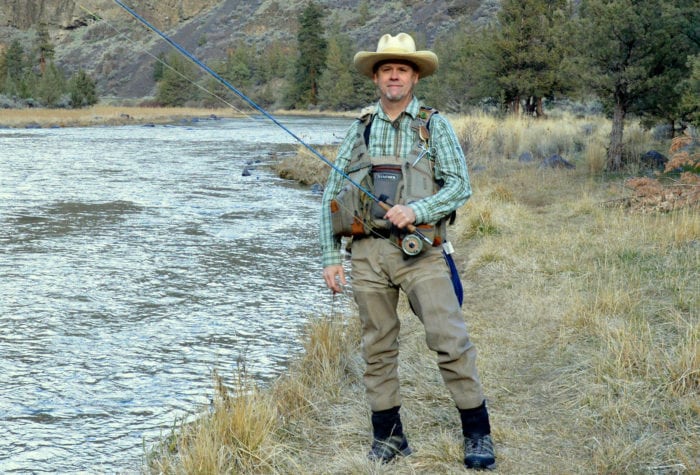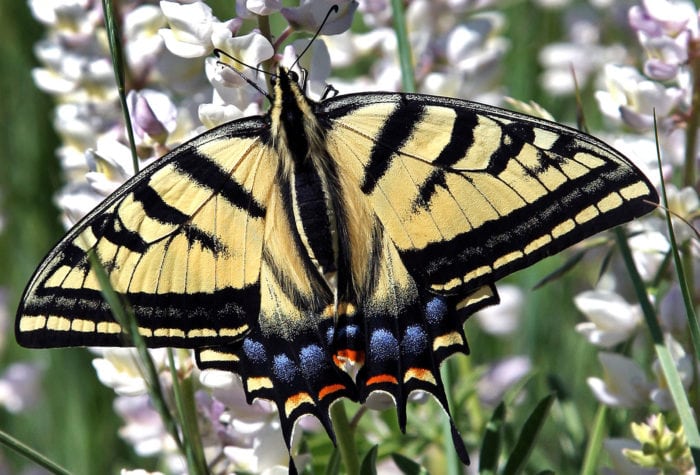South Fork WSA Fence Build #3
Aaron Tani
Organizer: Beth Macinko
Start Date: 9/17/2020
End Date: 9/20/2020
Region: Central Oregon
Difficulty Rating: 5 out of 5
Maximum Group Size: 12 participants
About the place
The South Fork of the Crooked River has its source just to the south of the South Fork Crooked River Wilderness Study Area (WSA). After the river carves its way north through the canyon in the WSA it passes through a patchwork of BLM lands and private ranches before reaching the main stem of the Crooked River. The South Fork has been the historic home to anadromous fish, and has even been the site of successful redband reintroduction efforts in recent years. However, due to the eradication of beaver, riparian habitat loss from overgrazing, and irrigation withdrawals dewatering the creek, the river’s water temperatures have risen and habitat quality has plummeted. This trip will take place on an 80-acre private inholding within the South Fork Wilderness Study Area which has now been placed under a conservation easement. This inholding encompasses both banks of nearly a quarter-mile of river.
About the stewardship work
Through a multi-pronged approach with private landowners, federal land managers, and ONDA, the situation will become significantly improved in the upper stretches of the river. ONDA is working to seek Wilderness protection for the WSA, as well as improved grazing practices within the river corridor portion of the WSA which is a designated Area of Critical Environmental Concern. In addition, ONDA has engaged with a private landowner who owns a large section of river frontage which borders the Wilderness Study Area. The landowner has removed all grazing from this sizable property (the “Jake Place”), and has partnered with ONDA to help with this important restoration effort. This trip contributes to the large-scale multi-year effort to improve the habitat not only on the property involved but throughout the entire South Fork Drainage.
Participants will backpack 3.5 miles up the river, where they will establish a camp for the duration of the trip. The main objective of this trip is to continue a multi-year process of constructing 1.6 miles of extremely rugged barbed wire fence around the inholding. This fence will exclude cattle, but not wildlife from the inholding, and will therefore set the stage for passive recovery of the riparian habitat, as well as allow for restoration plantings to occur in the coming years.
We will teach you everything you need to know about how to build barbed wire fence.
Trip highlights and challenges
The rewards on this trip are many. The views from the fenceline of the canyon are dramatic. The idea of visibly contributing to a cascade of improvements that will drive the recovery of large-scale habitat are profound.
Trip timeline
- Thursday, September 17, 4 p.m.: Meet at the Jake Place property on the South Fork of the Crooked River. Prompt arrival will be critical to allow the group to begin hiking up the canyon together to establish camp.
- Friday, September 18, 8 a.m. to 4 p.m.: A full day of work building fence away from camp.
- Saturday, September 19, 8 a.m. to 4 p.m.: A full day of work building fence away from camp.
- Sunday, September 20, 10 a.m.: After breakfast we can pack up camp and hike back to the vehicles together.
Camp
The campsite is on a broad juniper and sage-brush bench along the river in the center of the inholding. There is plenty of room to spread out, and trees for shade. The site is remote, undeveloped and without amenities other than being next to the river, and lovely. The access road is an un-maintained dirt road, but it is not too much for a Subaru, or even a regular sedan driven carefully (in good weather). You will be able to park your vehicle in a secure location behind a locked gate on private land.
Difficulty
This trip will be physically demanding. While all the materials will have been flown out to the worksite and cached along the proposed fence route, participants will need to be able to backpack to the campsite, help carry in a few small hand-tools, and navigate steep hills along the fence route during the work itself. Footing on the fence route is uncertain, and the ground where posts will be installed will be challenging. That being said, there will be many opportunities for taking breaks and switching up jobs which include clipping wire to posts, moving materials along the fence line and attaching stays.
Participant responsibilities
Participants are responsible for their own food and camping gear, as well as transportation to and from the trip. As always, car-pooling will be encouraged. Participants will need to be able to backpack their equipment 3.5 miles to the campsite. As always car-pooling will be encouraged. Sturdy off-trail ankle-high boots are required for this trip. We recommend bringing your own work gloves to provide a comfortable fit: but it is not required.
Gear provided
ONDA will provide work gloves if you don’t have a pair, all the tools and materials required for the work, safety gear and excellent guidance in the field.
Registration
An ONDA registration application and medical form are required for this trip. Check the box next to each trip you would like to attend. You only need to fill this form out once per year.
Join the Waitlist
What happens next?
You will receive a confirmation email within 10 working days of submitting your form. The confirmation email will provide information regarding which trips you are on the “participant list” for, and which trips are full, and therefore you have been placed on the “waitlist.”
Six weeks before the start of the trip, the trip leader will send out an RSVP to make sure everyone is still able to participate. Based on RSVPs, open spaces will be backfilled with people from the waitlist.
Three weeks before the trip start date, registered and confirmed participants will receive driving instructions, maps, car-pooling options, and additional information in an email sent by the trip leader
If you have any questions in the meantime, please don’t hesitate to contact the trip leader.

